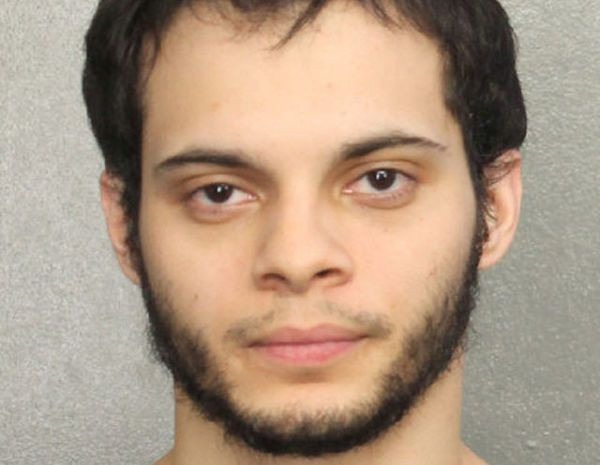Esteban Santiago Death Penalty: Motive, Mental Health, Terrorism Questioned After Fort Lauderdale Shooting

Esteban Santiago was scheduled to appear in federal court Monday morning on charges that could possibly bring him the death penalty after he gunned down 11 people at the Fort Lauderdale–Hollywood International Airport last week, killing five in the baggage claim area. Santiago, 26, was charged with carrying out violence at an airport, using a firearm during a violent act and killing with a firearm.
The accused shooter is an Iraq war veteran. He was taken into police custody Friday and has been held at the Broward County Jail in Fort Lauderdale. But it may take months for prosecutors to debate Santiago’s fate, according to Reuters.
“They've then got two weeks to indict him, and then they've got to go through the whole death penalty review," former federal prosecutor David Weinstein, a partner with Miami law firm Clarke Silverglate, told Reuters.
TMZ posted Sunday a surveillance video showing Santiago walking toward the baggage claim area Friday before suddenly pulling a handgun from his waistband and shooting at nearby victims. He then fled from the scene, while travelers plunged to the floor.
Authorities were still determining Monday whether the mass shooting was an act of terrorism and if Santiago’s mental illness triggered Friday’s attack. Santiago’s brother, Bryan Santiago, said Saturday his brother had requested psychological help but received little help, according to ABC News.
Esteban Santiago apparently was hearing voices as recently as August.
"How is it possible that the federal government knows, they hospitalize him for only four days, and then give him his weapon back?" Bryan Santiago said.
Investigators said Friday’s incident was deliberate and Santiago confessed to the shooting. He brought a one-way ticket from his home in Alaska to Fort Lauderdale, where he retrieved his 9mm semi-automatic handgun from his luggage to start the gun rampage.
Santiago served from 2007 to 2016 in the Puerto Rico and Alaska National Guards, including a deployment to Iraq from 2010 to 2011, according to the Pentagon. Since his return from Iraq, Santiago’s family said he hasn’t been the same.
While it still remains unknown whether Santiago will face the death penalty, there are approximately 32 states with the death penalty, and since 1976, there had been a total of 1,392 executions.
Once someone is convicted with the death penalty, it may take years before that person gets executed, Robin Konrad, director of research and special projects for the Death Penalty Information Center, told International Business Times.
“On average, it takes 17 years between the times of conviction and were the execution is carried out,” she said, adding that each state varies due to their guidelines.
Konrad noted that the majority of U.S. executions tend to occur in Texas. Last year, Georgia actually executed nine people, more than Texas with seven. Alabama had two executions, while Florida and Missouri have had one execution apiece, according to the Death Penalty Information Center. There were a total of 18 executions nationwide last year.
© Copyright IBTimes 2025. All rights reserved.






















